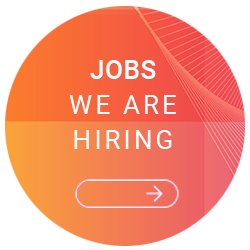Last Updated on 20. June 2025
In Germany, there are clear rules governing many areas of life, such as road construction, finance, and healthcare. In the digital world, however, such rules are largely absent, even though it has become the backbone of our society. These regulatory gaps lead to dependencies, barriers to innovation, and a loss of self-determination. That is why government commitment to digital sovereignty is needed.
Digital sovereignty: more than European cloud providers
Digital sovereignty means the ability to use technologies independently, securely, and autonomously. Currently, US corporations such as Microsoft, Amazon, and Google dominate everyday digital life, while European alternatives often remain without a chance – despite better data protection standards. Without political backing, they remain marginal phenomena.
The digital space needs clear rules for innovation and fairness
Digital platforms influence communication, markets, and opinion formation – often without democratic control. Cloud services on US servers or unregulated social media networks show how important it would be to enforce European rules. It should be noted, however, that a stricter interpretation, for example of the GDPR in Germany, appears questionable in comparison to neighboring countries, and that a uniform European interpretation and approach would be appropriate here.
Digital sovereignty: More than European cloud providers
Without compliance with standards, we lose control over our data and technologies. Binding rules for interfaces, data formats, and security measures are necessary—as are authorities to enforce them. Only then can fair conditions for European providers be created.
Open source as the key to independence
Open software creates transparency, verifiability, and independence. For it to be effective, the state must prioritize it—for example, when awarding IT projects. Centralized operating models and uniform identity management also prevent fragmentation. mgm relies on the open source platform A12 for its digitization projects – for greater openness, security, and legal compliance.
One example of successful government digitization using A12 is ELSTER, a platform that we at mgm developed together with the tax administration. It shows how technological sovereignty is possible.
What politicians must do now
Existing initiatives such as Gaia-X and the Sovereign Tech Fund are a start – but they are not enough. What is needed is:
- Binding requirements for open source in public administration
- Consistent enforcement of existing rules
- Anchoring digital sovereignty in law
- Structural support for European providers
We want to shape the future, not just watch it unfold
Digital sovereignty is a political imperative – not a technical detail. The state must act so that Europe can actively shape the digital future. With open platforms such as A12, mgm is helping to make digital solutions secure and transparent – for a sovereign digital world.
Further information:
Enterprise Low Code-Platform: A12 Website







